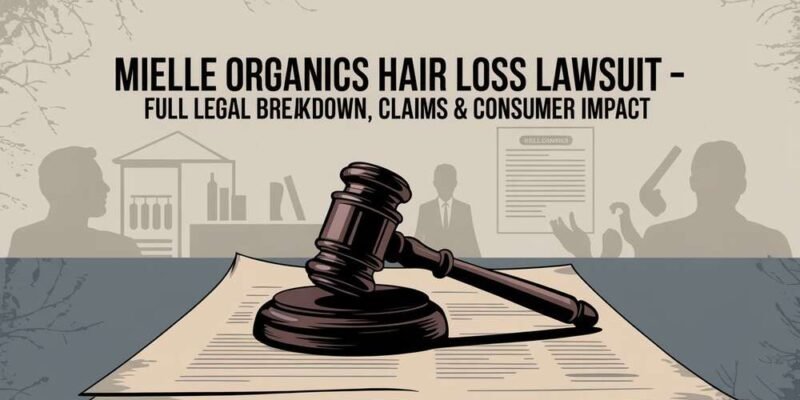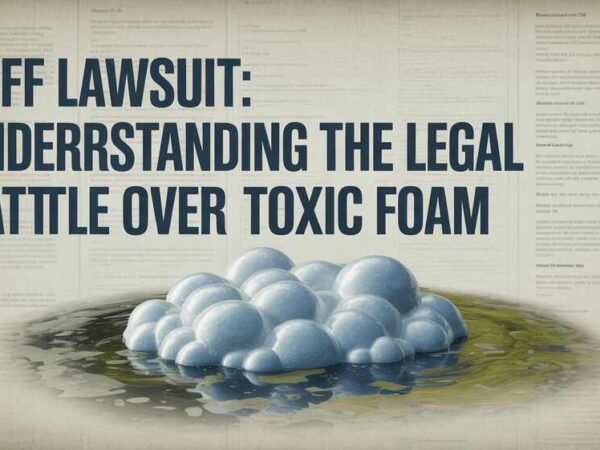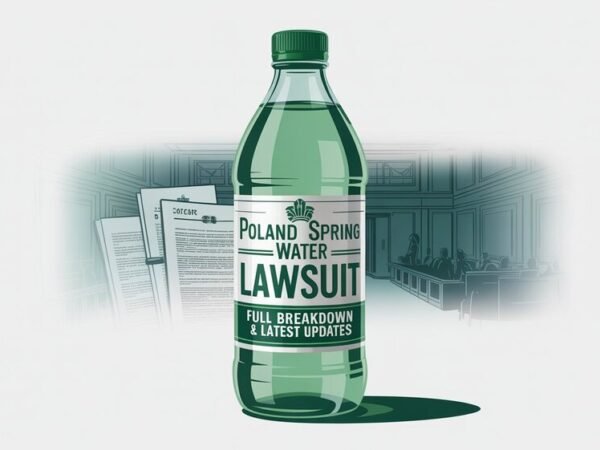Introduction to the Mielle Organics Lawsuit
The beauty and personal care industry has seen its fair share of controversies, but few have sparked as much conversation as the Mielle Organics hair loss lawsuit. This legal battle has raised questions about product safety and ignited a larger conversation about transparency, trust, and accountability within the natural hair care community. Mielle Organics, a brand that built its reputation on supporting natural hair growth and health, now finds itself at the center of a legal firestorm, with consumers alleging adverse effects like hair loss and scalp irritation after using its popular products. The “Mielle Organics hair loss lawsuit” has become a widely searched term, signaling growing public interest and concern.
About Mielle Organics
Founded in 2014 by Monique Rodriguez, Mielle Organics quickly rose to fame for its mission to provide high-quality, natural hair care solutions tailored primarily for textured hair. The brand garnered a loyal following, especially within the Black community, with formulations rich in botanical extracts and essential oils. Among its best-selling products, the Rosemary Mint Scalp & Hair Strengthening Oil gained cult status for its promise to stimulate hair growth and nourish the scalp. In January 2023, Mielle Organics was acquired by consumer goods giant Procter & Gamble, a move that initially sparked optimism about expanded product availability and brand growth. However, following the acquisition, consumer trust began to waver, with some customers alleging that the product formulas had changed, leading to undesirable effects.
Timeline of Allegations
Shortly after the acquisition announcement, the first wave of complaints surfaced on social media in early 2023. Users reported experiencing unexpected hair thinning, scalp burns, and breakage after using products they had trusted for years. TikTok, Instagram, and YouTube became central platforms for these testimonials, with influencers and everyday consumers sharing their experiences. These viral accounts quickly caught public attention and prompted discussions on whether the beloved Rosemary Mint Oil formula had been altered. While Mielle Organics denied any formula changes, the volume and consistency of consumer complaints fueled suspicions and led to mounting pressure for a transparent response.
Overview of the Hair Loss Lawsuit
In November 2024, a class action lawsuit was officially filed in federal court in Illinois against Mielle Organics and its parent company, Procter & Gamble. The plaintiffs — Stephanie Williams, Georgina Gomes, and Krista Gillette — claimed that they suffered hair loss, scalp irritation, and emotional distress due to prolonged use of Mielle products. They allege that the brand engaged in false advertising by promoting the Rosemary Mint Oil as a growth-enhancing and scalp-healing treatment without disclosing potential side effects. Additionally, the lawsuit contends that Mielle failed to adequately warn consumers about risks associated with the ingredients used, particularly for individuals with sensitive scalps or preexisting conditions. The plaintiffs seek compensatory and punitive damages and stricter regulatory oversight.
Key Legal Issues and Claims
Central to the lawsuit are concerns about several ingredients found in Mielle products, especially Diethanolamine (DEA), which has been scrutinized for its potential carcinogenic properties. The plaintiffs argue that such ingredients were not adequately disclosed or labeled, thereby misleading consumers about the safety of the products. In addition to safety concerns, the lawsuit raises allegations of deceptive marketing, particularly regarding the “Made in USA” labeling and claims that the product was composed entirely of natural ingredients. The legal filing also highlights violations of state-level consumer fraud protection acts, underscoring a broader issue of regulatory compliance and ethical marketing practices in the cosmetics industry.
Company’s Official Response
Mielle Organics has responded firmly to the allegations, categorically denying any wrongdoing. In multiple public statements and press releases, the brand has maintained that there have been no changes to product formulations since the Procter & Gamble acquisition. The company emphasizes that all its products meet safety standards and undergo rigorous testing. Furthermore, Mielle has reiterated its commitment to consumer education, launching several initiatives to inform users about proper application methods, ingredient benefits, and individualized hair care routines. Despite these efforts, skepticism remains among consumers, many of whom feel betrayed by a brand they once trusted implicitly.
Scientific & Medical Expert Perspectives
To better understand the validity of the hair loss claims, dermatologists and cosmetic scientists have weighed in. Experts note that while essential oils like rosemary and peppermint can promote circulation and potentially support hair growth, they can also cause irritation in sensitive individuals or when used excessively. Diethanolamine, a common emulsifier in cosmetics, has indeed been flagged by regulatory agencies for its potential health risks, mainly when used frequently over time. However, proving a direct causal link between the use of a product and hair loss is challenging due to the many variables involved — including underlying health conditions, genetics, and usage patterns. Still, the concentration of ingredients and transparency in labeling remain crucial factors in consumer safety.
Consumer Reactions & Brand Trust Fallout
The backlash against Mielle Organics has been swift and vocal. Social media has become a battleground, with hashtags like #BoycottMielle and #MielleLawsuit trending across platforms. The controversy has particularly shaken the brand’s standing within the Black community, which had championed Mielle as a beacon of representation and empowerment in the beauty space. Consumers have expressed feelings of betrayal, noting that the brand’s growth and mainstream success seem to have come at the expense of authenticity and quality. As a result, many former loyalists are exploring alternative brands that prioritize transparency and community engagement. The long-term impact on Mielle’s market share and brand equity remains to be seen.
Broader Impact on the Hair Care Industry
The “Mielle Organics hair loss lawsuit” is not just a cautionary tale for one brand — it serves as a wake-up call for the entire hair care industry. As consumers become more informed and discerning, the demand for ingredient transparency, ethical sourcing, and honest marketing is rising. This lawsuit may lead to tighter regulations and oversight, especially for products marketed toward vulnerable or niche demographics. Brands must invest more in research, third-party testing, and clear communication to maintain credibility and customer loyalty in a competitive landscape.
Conclusion & What to Watch Next
As the Mielle Organics hair loss lawsuit unfolds, consumers, legal experts, and the broader beauty industry closely watch its implications. While the brand maintains its innocence, the volume of complaints and the seriousness of the allegations cannot be ignored. The outcome of this case could set important legal precedents regarding product labeling, advertising, and accountability. In the meantime, consumers are advised to read labels carefully, patch-test new products, and stay informed through reliable news sources. Regardless of the legal resolution, the Mielle Organics case underscores the essential need for brands to prioritize consumer health and trust above all else.
Do Read: 23andMe Lawsuit: Data Breach, Claims & Legal Fallout













